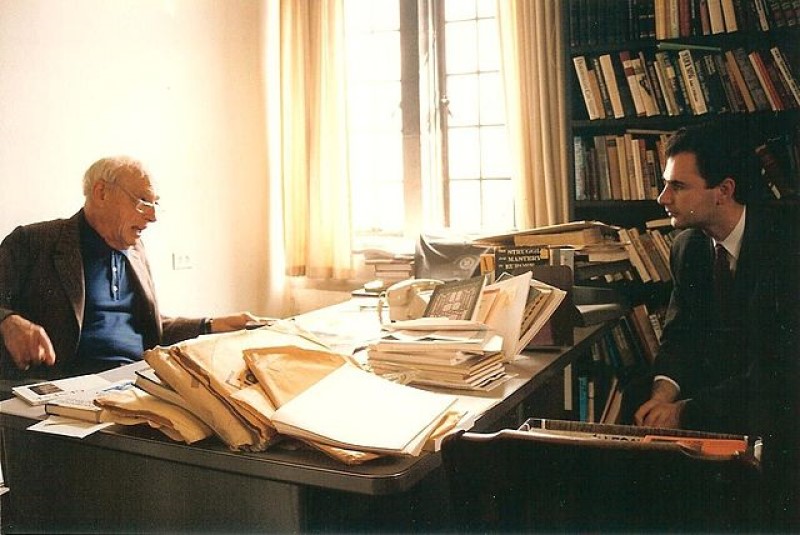
Nobel-winning author Saul Bellow (1915-2005) was best known for writing novels that used the urban landscape to explore individualism, intellectualism, the disorienting nature of modern civilization, and the potential for human awakening. Born in Quebec, Canada, Bellow precociously learned Hebrew at the age of four, and at nine moved to Chicago, a city that would play a pivotal role in many of his books. In fact, what Bellow did for Chicago has been compared with what Joyce did for Dublin, and Balzac for Paris. During his life, Bellow authored more than a dozen critically acclaimed novels and works of nonfiction, including 'Herzog,' 'Humboldt’s Gift,' 'Mr. Sammler’s Planet,' and 'The Adventures of Augie March.' On top of his Nobel Prize, Bellow is the only author to have won the National Book Award three times. He also won the Pulitzer Prize for Fiction, the O. Henry Award, and the National Medal of Arts, among many others.
In October 1933, Bellow was 18 when he enrolled at the University of Chicago, intending to pursue English literature. The tuition fee of $300 per year was being paid by his father, who was extremely reluctant to subsidize Bellow's education due to its lack of courses in law, economics, biochemistry, and pre-med. Even as a freshman, Bellow was already set on a career as a writer and wouldn't entertain the notion of pursuing a different path. Around campus, he began to carry a briefcase full of his early stories and manuscripts. In 1935, after only two years in college, Bellow abruptly withdrew from the University of Chicago after financial difficulties back home kept his father from paying university fees.
Not surprisingly, Bellow remained connected to the University long after his early student days on campus. In 1962, Bellow was appointed a professor in the Committee on Social Thought at the University of Chicago. For the next 30 years, the campus became Bellow's academic home. He taught, researched, wrote books, and even chaired the Committee on Social Thought from 1970 to 1976. Later, in 2017, over a decade after Bellow's passing, the University announced that it was opening an archive, the Guide to the Saul Bellow Papers 1926-2015, which documents Bellow's extensive correspondence as well as his creative work and literary fame. This archive contains his correspondences with literary legends Arthur Miller, Philip Roth, and Samuel Beckett; in addition to manuscripts of his novels and speeches, appointment books, and clips of newspaper coverage of his work. “Opening up the Bellow papers," said Brenda Johnson, Library Director, "will provide generations of scholars with the materials they need to develop new insights into Saul Bellow and 20th-century American history and culture."
